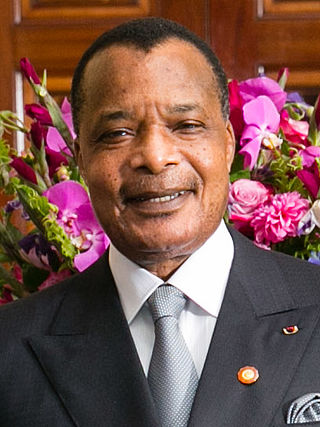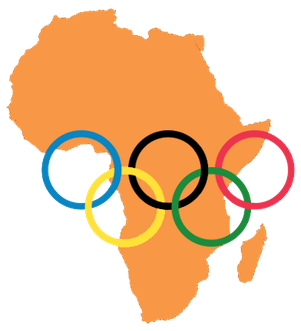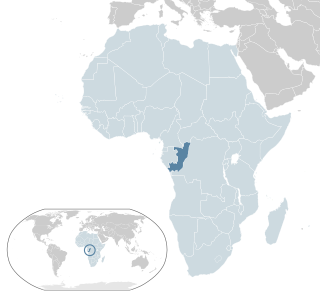This article needs additional citations for verification .(January 2016) |
Rugby union is a minor but growing sport in the Republic of the Congo .
This article needs additional citations for verification .(January 2016) |
Rugby union is a minor but growing sport in the Republic of the Congo .
The national union is a member of the Confederation of African Rugby, but not of the International Rugby Board.
Rugby union was introduced into the country by the French, who ruled the country for a number of years.
Rugby is centred on the national capital, Brazzaville. The Congo lacks good transport networks and along with its political instability, civil war, and the extreme poverty of the country, it is difficult for it to maintain a proper national league structure.
Like many African countries, the historical connection with France is a mixed blessing. For a number of years, Congolese rugby players would leave to play there, which deprived rugby in the Congo of any real competition.

The history of the Republic of the Congo has been marked by diverse civilisations: Indigenous, French and post-independence.

Brazzaville is the capital and largest city of the Republic of the Congo. Administratively, it is a department and a commune. Constituting the financial and administrative centre of the country, it is located on the north side of the Congo River, opposite Kinshasa, the capital city of the Democratic Republic of the Congo.

Denis Sassou Nguesso is a Congolese politician and former military officer who became president of the Republic of the Congo in 1997. He served a previous term as president from 1979 to 1992. During his first period as president, he headed the Congolese Party of Labour (PCT) for 12 years. He introduced multiparty politics in 1990, but was stripped of executive powers by the 1991 National Conference, remaining in office as a ceremonial head of state. He stood as a candidate in the 1992 presidential election but placed third.

AbbéFulbert Youlou was a laicized Brazzaville-Congolese Roman Catholic priest, nationalist leader and politician, who became the first President of the Republic of the Congo on its independence.

The African Games, formally known as the All-Africa Games or the Pan African Games, are a continental multi-sport event held every four years, organized by the African Union (AU) with the Association of National Olympic Committees of Africa (ANOCA) and the Association of African Sports Confederations (AASC).

Alphonse Massamba-Débat was a political figure of the Republic of the Congo who led the country from 1963 until 1968 in a one-party system.

Rugby Africa is the administrative body for rugby union within the continent of Africa under the authority of World Rugby, which is the world governing body of rugby union. As of 2018, Rugby Africa has 37 member nations and runs several rugby tournaments for national teams, including the Africa Cup which is the main 15-a-side competition for African national teams.

The Second Republic of the Congo Civil War, also known as the Second Brazzaville-Congolese Civil War, was the second of two ethnopolitical civil conflicts in the Republic of the Congo which lasted from 5 June 1997 to 29 December 1999. The war served as the continuation of the civil war of 1993–1994 and involved militias representing three political candidates. The conflict ended following the intervention of the Angolan military, which reinstated former president Denis Sassou Nguesso to power.

The People's Republic of the Congo was a Marxist–Leninist socialist state that existed in the Republic of the Congo from 1969 to 1992.

The Association of National Olympic Committees of Africa is an international organization that unites the 54 National Olympic Committees (NOCs) of Africa. It is currently headquartered in Abuja, Nigeria. It serves as the successor to Standing Committee of African Sports or Comité permanent du sport africain founded in 1965 in Brazzaville, Republic of Congo.

The following outline is provided as an overview of and topical guide to the Republic of the Congo:

Republic of the Congo–Russia relations refers to bilateral foreign relations between the Republic of the Congo and Russia. The Republic of the Congo has an embassy in Moscow. Russia has an embassy in Brazzaville.

The Republic of the Congo, also known as Congo-Brazzaville, West Congo, Congo Republic, ROC, or simply either Congo or the Congo, is a country located on the western coast of Central Africa to the west of the Congo River. It is bordered to the west by Gabon, to the northwest by Cameroon, to the northeast by the Central African Republic, to the southeast by the Democratic Republic of the Congo, to the south by the Angolan exclave of Cabinda, and to the southwest by the Atlantic Ocean.

The African and Malagasy Union (AMU) was an intergovernmental organization created to promote cooperation among newly independent states in Francophone Africa. The organization derives its name from the name of the continent of Africa and from the former Malagasy Republic, now Madagascar. The organization disbanded in 1985.
Jean-Michel Bokamba-Yangouma was a Congolese politician. He was a prominent political figure from the 1970s to the 1990s, heading the Congolese Trade Union Confederation. He was the President of the General Movement for the Construction of Congo, a political party.
Rugby union in the Democratic Republic of the Congo is a minor but growing sport.
The Trois Glorieuses was an uprising in Congo-Brazzaville which occurred from August 13 to 15, 1963. The uprising ended the rule of the first Congolese President, Fulbert Youlou, as the opposition trade union movement and Congolese Youth Union struck an alliance with the army.
Mass media in the Republic of the Congo are severely restricted by many factors, including widespread illiteracy and economic underdevelopment.
Adama Smith Dickens is a Congolese footballer who plays as a midfielder. She played for 1207 Antalya Muratpaşa Belediye Spor in the Turkish Women's First Football League with jersey number 24. She is a member of the Congo women's national football team.